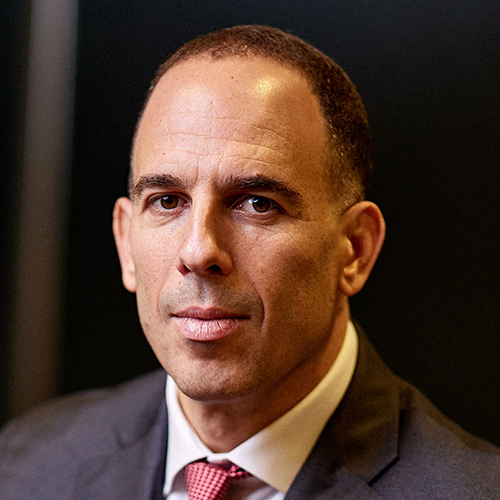 |
|
| Stiglitz: Unfettered markets don't work on their own |
In his latest book, Freefall, the 2001 Nobel Laureate for Economics, Joseph Stiglitz, professor of economics, Columbia University, says “the big lesson of this crisis is that despite all the changes in the last few centuries, our complex financial sector was still dependent on trust. When trust broke down, our financial system froze.”
In his visit to Asia a few months back, Stiglitz sat down with The Asset to share his views on how China and Asia could avoid the mistakes in the West by having a strong set of regulations to foster trust.
Stiglitz also discusses how he sees China and Asia developing, the question around the value of the renminbi, how China and America are facing very different challenges and offers advice on reforming local government financing in China and how Asia can building better capital markets.
Can Asia remain strong when the rest of the world is still in a mess?
Probably yes, for a while. There are vast internal markets in Asia such as in India and China – internal markets that have not been well developed. Take the case of China where the savings rate is 50%. If China converts a part of that into consumption, it can maintain the demand to make up for some of the loss from exports. The other emerging markets in Asia are also growing so you have a part of the global economy that is decoupling from the rest of the world.
I don’t know how long they can do it. Certainly, China showed that it can do it this year. That was the case when they switched to public investments. But you can’t build railroads or new road systems every year. On the other hand, these are investments that will presumably start yielding returns – generate income and consumption.
Another way of putting it is we’ve had dynamic theories of growth that do not require trade. Closed economies are able to grow on their own. I don’t want to use the word myth, but we’ve had this notion that trade is the origin of all growth. It has played an important role but there is no necessity for that. You get advantages from comparative advantage because you can specialize in things that you are strong in.
In the early stages of development, trade is very important. In the early stages, you want to increase your supply capacity before you have the demand to buy the goods. China is now over that early stage of development. Export–led growth may have been a critical as the engine but it isn’t a necessity to keep it.
What is the important lesson Asia can learn from the crisis in the West?
Unfettered markets don’t work on their own. The extreme view – market fundamentalism – never had a theoretical foundation to it. It was politically popular among certain circles in the business community. Now we know how dangerous that view was. The full consequences are still becoming apparent.
For instance, the problems we are seeing in Greece, Spain and other countries are directly the consequence of the private sector’s mismanagement – the bubble, the excessive risk-taking, etc. The governments tried to save the private sector and the thank-you note from the financial sector for having been saved is – we’re going to attack you because your deficit is high; because you spent money to save us! It is a crazy situation, but that’s the way, unfortunately, markets work.
How do you view the response of policymakers in Asia and China and what steps should they take to mitigate the effects of the crisis?
They have done a spectacular job in responding to the crisis. The growth was much stronger than anyone anticipated. When they saw the crisis coming, they acted quickly, decisively. They used a combination of monetary and fiscal policies. Because we (the US) chose not to intervene in the financial sector that had been performing disastrously, we could not get the banks to lend. Whereas in China, they could get the banks to lend and that was an important part of the rescue. Because we had to rely on fiscal policy, the debt went way up. We began in a very bad position; the US government had a big deficit because of [former president] Bush’s war on Iraq and total fiscal mismanagement. Even before the crisis, China was in a better position. It then responded much more effectively.
Going forward, there are two worries. One of them is the property bubble. Other measures of liquidity to save the economy can give rise to problems. The enormous liquidity in the United States has led to the risk of new bubbles all over the world. This is not just a China problem; this is a global problem. The overall problem is the exit from the stimulus measures.
The second issue that China faces is a consequence of the fact that the United States and Europe are likely to be facing very slow growth for a very long time. That reinforces the necessity of China moving away from its export-led growth model – this is a core part of the 11th five-year plan. The progress has been slow. But I think this is going to provide the impetus to that. The real question is will they be able to move away from that model to a new model fast enough to reflect the changing external conditions.
Insofar as the global imbalance is concerned, critics of China have zeroed in on what they believe is an undervalued currency. What is your view?
China has always been very clear that it does not have a fixed exchange rate. But it does not believe that you should just let markets randomly determine exchange rates because there will be excess volatility. And they are absolutely right about that – there will be excess volatility, which exerts enormous strain on an economy and on a society. You need to have a role for the government to stabilize the exchange rate.
The issue – China views it and as I would view it – is a question of timing. There is a lot of uncertainty about the pace of global recovery – the fragility of the recovery – made all the more manifest by the problems of Greece, Spain and Europe, which to me certainly highlights the risk of a double-dip. In America, we are very worried about a double dip. The question therefore is: is this the right time for an appreciation? Or is it actually useful for the global economy at this moment to have a little bit more stability.
Two other aspects have been emphasized by China: first, an adjustment in the exchange rate is unlikely to have a big effect on America’s multilateral trade deficit. It will shift America’s sourcing of imports, say buying apparel from Sri Lanka and Bangladesh rather than China, but we are not going to start producing [these goods] in the United States. The worry, quite justified, is that if in six months’ time Congressional and popular unhappiness about unemployment is still there, they will still apply the pressure. It won’t buy very much; it will just buy little time during which the problem will still be festering.
The second point is that the United States continues to put export restraints. It is very difficult to make a persuasive case for trade imbalances caused by the exchange rate when at the same time you are putting restraints on the exports of helicopters, high-tech products and other things. China is buying them from other countries. It is a little bit of a foolish policy because it is a relic of the Cold War. The Cold War ended in 1989 or even before. Why are we still having these export restraints? We ought to be working towards a system of global cooperation rather than [policies] based on these export restraints.
What are some of the issues that need to be considered around the withdrawal of stimulus in China and around the world?
There are clearly issues around the timing of the withdrawal and the form of withdrawal. But there is a very big difference between China and the rest of the world. The theory of the stimulus was that you would put in money from the government to make up for the shortfall from the private sector. And the theory was that the private sector had a shock and it was short–term, but that the private sector would recover. As the private sector recovered, the government intervention would be withdrawn.
In the case of the United States and Europe, it was clear to me that the United States has experienced a far deeper shock than either those in the Bush or Obama administration wanted to admit. Part of the reason they did not want to admit it [was because] the people in the Bush and Obama administration included the people who had created the bubble! They did not want to admit that they had really mismanaged the economy; they wanted to pretend that there is just this little wrinkle; a little bump and we will get over it.
But the way I saw it, they actually had badly mismanaged the economy; it was not just a little bump; we would not be over in three months, six months, nine months or even a year and a half. Therefore, come a year-and-a-half or two years when the stimulus was coming down, the private sector would not be ready to fill in the hole. We are now facing a situation in the United States of a double-dip. Whether it will actually go negative or [it turns into a] market slowdown, it is very clear that the private sector is not robust enough to sustain a total withdrawal not only of federal money but also of state funding – remember the states are already contracting because of the fall in state revenues.
China is in a totally different situation because its economy has picked up. And it is growing so rapidly that people are worried about an overheated economy, which is exactly when you can feel comfortable about an exit from a stimulus. The short-term intervention worked in China. Unfortunately, we [United States] had too small an intervention and in the context of an overly weak economy.
There has also been talk about a debt crisis in local governments in China. How do you view such a possibility?
The fundamental problem is that the local governments are heavily dependent on land sales to generate revenues. There is a need for a new model of sustaining local governments. In every large economy, there is a need for some kind of decentralization. But with decentralization, one has to think about the question of what the sources of revenue are.
There are a number of approaches. The current approach of the Chinese government cannot work in the long- run and it is probably distorting the economy in the short–run. What makes sense is a comprehensive, fair and progressive income tax that would tax capital gains, tax property income, with a revenue-sharing formula, and some kind of accountability where some of the money is shared with the provinces and municipalities so that they don’t have to resort to the current distortionary mechanisms.
It would have some further advantages; the central government has been committed for a long time to pursuing strong environmental measures. The current structures really encourage the local communities to push road-building over the environment. In the long-run that is not sustainable. Moving away from the current framework I think would facilitate China in fulfilling its ambitions in trying to achieve a better environmental policy.
Given what has happened in the West, and with Asia/China continuing to pursue a strategy to encourage the development of its financial markets, what should the region be aware of as it pursues this strategy?
You should be very aware of how badly Western financial markets performed – that much of what they said about what they were doing is just wrong. And there is a clear recognition that a lot of what was called risk management in the United States is nothing more than legalized gambling – legalized and unregulated gaming.
An interesting comment made during the hearing at the Senate was that [the financial markets are] just like Las Vegas. And the senator from Nevada said: “You’re insulting my state; at least in my state, we have rules about gaming! And you can’t change the odds while the game is going on.” I think he is absolutely right.
The way to approach it is to go back to first principles. What is the function of a financial market? Allocating capital, managing risk, running a payments mechanism and doing it all at a lower transaction cost. We misallocated capital; we created risk; we did not manage risk; we have a very inefficient payments mechanism and we have very high transaction costs. 40% of all corporate profits went to the financial sector. We confused means with ends. That’s always a mistake. If you go back to what it is that you want a financial system to do, you can then start thinking about: how do we achieve it?
Let me take one aspect of that: an efficient payments mechanism. Modern technology allows for a transfer of money when you go into a store and buy a good - money from your bank account to the store’s bank account for a fraction of a penny. Our banking system uses its monopoly powers to extract rents of 1% to 4% for that transaction. That’s pure extortion. It is like a tax but a tax that does not go for public purpose but goes for enriching the monopoly profits of the banking system. So they can engage in more gambling. That should not be allowed.
That’s why you need a strong government to say ‘look let’s have an efficient electronics payments mechanism’. That would put Asia way ahead of the West if it created this electronic payments mechanism. And then you say ‘now if you are going to have risk management – like insurance, you can have insurance, [but] you will have to have adequate capital.’ We had an insurance company that was undercapitalized – AIG. American taxpayers had to come in to the tune of US$178 billion.
You think about what they’re doing and you say we understand the principles on how to do it. If you are going to allocate capital, you have to have information. Credit rating agencies are paid for by the people they are rating. That is a clear conflict of interest. This is not rocket science. You can’t allow those conflicts of interest. Wall Street was rife with those conflicts of interest.
In the end, you need a set of publicly funded rating agencies. I think the private rating agencies, there are too few of them in a sense; their track record is terrible; they’ve caused more problems – they gave triple A ratings to these junk subprime mortgages. Now, they are bringing down governments that are perfectly capable of meeting their debt obligations but because of the bad rating, interest rates go up and they’re not going to be able to meet their debt payments. They have caused more harm than good.
If you are an investor, you can’t delegate responsibility to a rating agency and I think that was what was done. But information is valuable. We have a Food and Drug Administration to assess whether the food that we eat or drugs that we take are safe and effective. We need some way of getting information but the way we are doing now is clearly inadequate.
How should Asia approach the development of the derivatives market?
The derivatives market is again something that has not worked well. [There have been some] interesting discussions in the United States on provisions that have come out of the agriculture committee, which is where the derivatives legislation is. Let me mention two or three proposals that I think are moving in the right direction. First, they should be traded in an open and transparent way on exchanges. Trading in secret does not do good for anybody. You can’t have market discipline if people don’t know what is going on in the market.
Secondly, they need to be traded over clearing houses. If you don’t have that then counterparty risk problems explode. That means I don’t know my financial position because I have an insurance policy with somebody who may go bankrupt. And you don’t know what my position is; nobody knows what his position is and the whole principle of decentralization breaks apart.
Third, we should not have the US government writing derivatives [contracts]. That seems obvious. But the US government is effectively underwriting the derivatives because most of the derivatives are written by J.P. Morgan, Citi - FDIC-insured institutions - which means if something happens the US taxpayers pick up the tab as it did with AIG. My own view is that if you are too large to fail, you should not be allowed to write derivatives. The proposal to have come out in the Senate so far does not go that far. But what I say is that you cannot be an FDIC-insured bank and write derivatives. You can do it through an affiliate but if you are adequately capitalized. If you have an insurance [business], it should not be subsidized by the US government; it should be separate. That seems to me a basic principle.
What worries you about Asia/China?
The big issue for China is its ability to move from the export-led growth model to another new model. What gives me hope is that there is widespread recognition that there needs to be that change. What makes me worry is there are special-interest groups in China just like there are special-interest groups in the United States that keeps looking to the past rather than to say, China in 2020. That is going to [require] a different structure, big reforms – not towards an unfettered market – but towards a more decentralized, dynamic economy. This means a lot larger role, in my mind, for small and medium-sized enterprises; a very different structure in terms of the economy. The big challenge is whether China is able to make that transition. I think it can.









